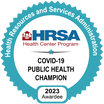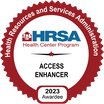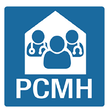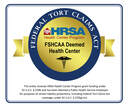Patient Rights and Responsibilities
Mission
The mission of Community Care of West Virginia, Inc. (CCWV) is to help our communities live the healthiest lives possible by meeting their immediate and long-term healthcare needs.
This mission shall be accomplished by providing high quality, accessible, comprehensive, culturally-appropriate, cost-effective healthcare services, by serving as a true comprehensive medical home for our patients and customers, without regard for their ability to pay, and by striving to fulfill the objectives of The Institute for Healthcare Improvement’s Quadruple Aim.
Supported by electronic health systems, CCWV strives to ensure that every patient is offered a full breadth of available services, including general primary care, diagnostic laboratory, screenings, emergency medical services, voluntary family planning, immunizations, well child services, obstetrics and gynecological care, referral to specialist services, pharmacy, substance abuse services, case management, health education, outreach, referral and translation.
Policy
It is the policy of Community Care of West Virginia, Inc. to preserve the rights of patients and to facilitate the staff’s awareness of these rights. The values of CCWV support the need to foster the dignity and preserve the rights of each patient. We recognize that no catalogue of rights can guarantee the kind of treatment a patient has the right to receive. Therefore, in addition to the rights contained in this policy, we will continue to carry out all aspects of patient care with primary concern for the value and respect of the patient.
Procedure
I. Patient Rights
A. Appropriate and compassionate care:
Patients have the right to appropriate and compassionate care at all times and under all circumstances. Each patient has the right to be treated with respect and recognition of his or her dignity and need for compassionate care.
Patients will not be denied appropriate care on the basis of age, race, religion, color, national origin, ethnicity, sex, sexual orientation, gender identity or expression, physical or mental disability, marital status, socioeconomic status, or source of payment. Patients have the right to receive care that takes into consideration the psychosocial, spiritual and cultural values that influence the way the patient views their illness.
B Staff identification:
Patients have the right to know the identity and of the professional status of individuals providing care to them. All staff members are required to wear photo ID badges per the Health Care Provider Transparency Act. CCWV believes those who regulate and deliver medical care have an obligation to inform the public of the qualifications and limitations of the persons providing their care prior to treatment. The identification badge, including one’s licensure, will be worn in a conspicuous manner so as to be visible and apparent.
C. Information regarding medical condition:
Patients have the right to receive information about their medical diagnosis, proposed course of treatment, procedures, and prospects for recovery unless this is medically contraindicated. This information should be communicated in terms that the patient can reasonably be expected to understand. If the physician withholds this information he/she must record the reason in the patient’s medical record. When it is not medically advisable to give such information to the patient, the information should be available to a legally authorized individual.
D. Safety:
Patients have the right to expect reasonable safety in the performance of procedures and safety in the environment.
E. Advance Directives:
Patients have the right to formulate advance directives and have their care providers comply with these directives in accordance with applicable law.
F. Refusal of treatment:
Patients have the right to refuse treatment to the extent provided by law and to be informed of the medical consequences of that refusal. Patients who refuse care or treatment are responsible for the results of that decision.
G. Request for service:
Patients have the right to expect that within its capacity, the clinic will respond to a patient’s request for service. Evaluation, service and/or referrals will be completed as indicated by the urgency of the case. Patients have the right to consult with a specialist or change doctor at their own expense.
H. Access to the medical record
Patients have the right to obtain copies of their completed medical record upon request with a valid signed authorization. A fee may be charged for copies of the medical record in accordance with West Virginia law.
I. Confidentiality of Records
Patients have the right to expect that communication and records regarding their care will be treated confidentially. Records will not be released except as authorized by patients, their legal representative, as required by law, or as required by third party payment contracts.
J. Privacy - personal and information:
Patients have the right to privacy in treatment and in caring for their personal needs. This includes the right to be interviewed and examined in surroundings designed to assure reasonable privacy.
K. Presenting a complaint:
Patients and their family members or guardians have the right to present complaints to CCWV about any aspect of the patient’s care at CCWV. Patients and their family members are encouraged to voice complaints to the Site Manager for prompt resolution. However, if the patient or their family member is not satisfied with the resolution provided by the Site Manager, the patient and/ or family member must be informed of their right to present formal complaints and the process to do so. Patient grievance policy and procedures are available upon request and patient comment cards are available at each site for use in recording a complaint.
You can also file a civil rights complaint with the US Department of Health and Human Services, Office for Civil Rights, electronically through the Office for Civil Rights Complaint Portal, available at https://ocrportal.hhs.gov/ocr/portal/lobby.jsf, or by mail or phone at:
U.S. Department of Health and Human Services
200 Independence Avenue, SW
Room 509F, HHH Building
Washington, DC 20201
800-368-1019
800-537-7697 (TDD)
Complaint forms are available at: http://www.hhs.gov/ocr/office/file/index.html.
L. Information regarding billing statements:
Patients have the right to receive an explanation of their bill for services regardless of the source of payment. Patients also have the right to receive, upon request, information on CCWV’s patient assistance programs.
M. Consent:
Patients have the right to informed participation in decisions involving their health care. Patients should not be subjected to any procedure without their voluntary and competent understanding with written consent of the patient or of their legally authorized representative. Where medically significant alternatives for care or treatment exist, the patient shall be so informed. Patients have the right to know who is responsible for authorizing and performing the procedures or treatment.
N. West Virginia Board of Pharmacy:
Patients have the right to be informed that prior to dispensing or prescribing a controlled substance the prescribing provider must access the Controlled Substances Monitoring Program database that is maintained by the West Virginia Board of Pharmacy to ensure the patient is not seeking controlled substances from multiple sources.
II. Patient Responsibilities
Healthcare is a cooperative effort among patients, medical providers, and other clinic staff. In addition to rights, it is expected that patients will assume these responsibilities to the best of their abilities.
A. Following the clinic’s rules and regulations as they are explained or as described in printed materials.
B. Consistently following the terms and conditions contained in the Controlled Substance Maintenance Therapy Agreement. This includes random
urine drug screens and pill counts.
C. Patient may be called upon to provide a urine or blood sample at any time during my participation in the Community Care of West Virginia Pain
Management Program and that they will be required to provide said sample within a reasonable period of time following the Provider’s request to do
so.
D. Providing, to the best of their knowledge, a complete and accurate medical history when requested to do so.
E. Informing their medical provider or nurse if they do not understand their treatment plan or what they are expected to do.
F. Following the recommended treatment plan presented by the medical provider. Each patient has the responsibility to cooperate with his or her
treatment staff. If the patient has questions or disagrees with the treatment plan, he or she has the responsibility to discuss it with his or her medical
provider. If patient or family refuses treatment or fails to follow the medical provider’s instructions, they are responsible for the outcomes.
G. Informing their medical provider or nurse if there is an unexpected change in their condition or if problem arises in treatment.
H. Paying their clinic bill, or informing the clinic if they cannot pay the bill so that other arrangements can be made. Patients are responsible for being
familiar with the nature and extent of their insurance coverage including referral and authorization requirements.
I. Being considerate of the other patients and of clinic staff and property. Each patient has the responsibility to be courteous and respectful of all CCWV
staff.
J. Patients and their families are responsible for reporting perceived risks in their care and unexpected changes in the patient’s health. Patients and
families also have the right to education about their role in helping facilitate the safe delivery of care.
K. Each patient has the responsibility to keep all scheduled diagnostic or treatment appointments made through the referral process.
The mission of Community Care of West Virginia, Inc. (CCWV) is to help our communities live the healthiest lives possible by meeting their immediate and long-term healthcare needs.
This mission shall be accomplished by providing high quality, accessible, comprehensive, culturally-appropriate, cost-effective healthcare services, by serving as a true comprehensive medical home for our patients and customers, without regard for their ability to pay, and by striving to fulfill the objectives of The Institute for Healthcare Improvement’s Quadruple Aim.
Supported by electronic health systems, CCWV strives to ensure that every patient is offered a full breadth of available services, including general primary care, diagnostic laboratory, screenings, emergency medical services, voluntary family planning, immunizations, well child services, obstetrics and gynecological care, referral to specialist services, pharmacy, substance abuse services, case management, health education, outreach, referral and translation.
Policy
It is the policy of Community Care of West Virginia, Inc. to preserve the rights of patients and to facilitate the staff’s awareness of these rights. The values of CCWV support the need to foster the dignity and preserve the rights of each patient. We recognize that no catalogue of rights can guarantee the kind of treatment a patient has the right to receive. Therefore, in addition to the rights contained in this policy, we will continue to carry out all aspects of patient care with primary concern for the value and respect of the patient.
Procedure
I. Patient Rights
A. Appropriate and compassionate care:
Patients have the right to appropriate and compassionate care at all times and under all circumstances. Each patient has the right to be treated with respect and recognition of his or her dignity and need for compassionate care.
Patients will not be denied appropriate care on the basis of age, race, religion, color, national origin, ethnicity, sex, sexual orientation, gender identity or expression, physical or mental disability, marital status, socioeconomic status, or source of payment. Patients have the right to receive care that takes into consideration the psychosocial, spiritual and cultural values that influence the way the patient views their illness.
B Staff identification:
Patients have the right to know the identity and of the professional status of individuals providing care to them. All staff members are required to wear photo ID badges per the Health Care Provider Transparency Act. CCWV believes those who regulate and deliver medical care have an obligation to inform the public of the qualifications and limitations of the persons providing their care prior to treatment. The identification badge, including one’s licensure, will be worn in a conspicuous manner so as to be visible and apparent.
C. Information regarding medical condition:
Patients have the right to receive information about their medical diagnosis, proposed course of treatment, procedures, and prospects for recovery unless this is medically contraindicated. This information should be communicated in terms that the patient can reasonably be expected to understand. If the physician withholds this information he/she must record the reason in the patient’s medical record. When it is not medically advisable to give such information to the patient, the information should be available to a legally authorized individual.
D. Safety:
Patients have the right to expect reasonable safety in the performance of procedures and safety in the environment.
E. Advance Directives:
Patients have the right to formulate advance directives and have their care providers comply with these directives in accordance with applicable law.
F. Refusal of treatment:
Patients have the right to refuse treatment to the extent provided by law and to be informed of the medical consequences of that refusal. Patients who refuse care or treatment are responsible for the results of that decision.
G. Request for service:
Patients have the right to expect that within its capacity, the clinic will respond to a patient’s request for service. Evaluation, service and/or referrals will be completed as indicated by the urgency of the case. Patients have the right to consult with a specialist or change doctor at their own expense.
H. Access to the medical record
Patients have the right to obtain copies of their completed medical record upon request with a valid signed authorization. A fee may be charged for copies of the medical record in accordance with West Virginia law.
I. Confidentiality of Records
Patients have the right to expect that communication and records regarding their care will be treated confidentially. Records will not be released except as authorized by patients, their legal representative, as required by law, or as required by third party payment contracts.
J. Privacy - personal and information:
Patients have the right to privacy in treatment and in caring for their personal needs. This includes the right to be interviewed and examined in surroundings designed to assure reasonable privacy.
K. Presenting a complaint:
Patients and their family members or guardians have the right to present complaints to CCWV about any aspect of the patient’s care at CCWV. Patients and their family members are encouraged to voice complaints to the Site Manager for prompt resolution. However, if the patient or their family member is not satisfied with the resolution provided by the Site Manager, the patient and/ or family member must be informed of their right to present formal complaints and the process to do so. Patient grievance policy and procedures are available upon request and patient comment cards are available at each site for use in recording a complaint.
You can also file a civil rights complaint with the US Department of Health and Human Services, Office for Civil Rights, electronically through the Office for Civil Rights Complaint Portal, available at https://ocrportal.hhs.gov/ocr/portal/lobby.jsf, or by mail or phone at:
U.S. Department of Health and Human Services
200 Independence Avenue, SW
Room 509F, HHH Building
Washington, DC 20201
800-368-1019
800-537-7697 (TDD)
Complaint forms are available at: http://www.hhs.gov/ocr/office/file/index.html.
L. Information regarding billing statements:
Patients have the right to receive an explanation of their bill for services regardless of the source of payment. Patients also have the right to receive, upon request, information on CCWV’s patient assistance programs.
M. Consent:
Patients have the right to informed participation in decisions involving their health care. Patients should not be subjected to any procedure without their voluntary and competent understanding with written consent of the patient or of their legally authorized representative. Where medically significant alternatives for care or treatment exist, the patient shall be so informed. Patients have the right to know who is responsible for authorizing and performing the procedures or treatment.
N. West Virginia Board of Pharmacy:
Patients have the right to be informed that prior to dispensing or prescribing a controlled substance the prescribing provider must access the Controlled Substances Monitoring Program database that is maintained by the West Virginia Board of Pharmacy to ensure the patient is not seeking controlled substances from multiple sources.
II. Patient Responsibilities
Healthcare is a cooperative effort among patients, medical providers, and other clinic staff. In addition to rights, it is expected that patients will assume these responsibilities to the best of their abilities.
A. Following the clinic’s rules and regulations as they are explained or as described in printed materials.
B. Consistently following the terms and conditions contained in the Controlled Substance Maintenance Therapy Agreement. This includes random
urine drug screens and pill counts.
C. Patient may be called upon to provide a urine or blood sample at any time during my participation in the Community Care of West Virginia Pain
Management Program and that they will be required to provide said sample within a reasonable period of time following the Provider’s request to do
so.
D. Providing, to the best of their knowledge, a complete and accurate medical history when requested to do so.
E. Informing their medical provider or nurse if they do not understand their treatment plan or what they are expected to do.
F. Following the recommended treatment plan presented by the medical provider. Each patient has the responsibility to cooperate with his or her
treatment staff. If the patient has questions or disagrees with the treatment plan, he or she has the responsibility to discuss it with his or her medical
provider. If patient or family refuses treatment or fails to follow the medical provider’s instructions, they are responsible for the outcomes.
G. Informing their medical provider or nurse if there is an unexpected change in their condition or if problem arises in treatment.
H. Paying their clinic bill, or informing the clinic if they cannot pay the bill so that other arrangements can be made. Patients are responsible for being
familiar with the nature and extent of their insurance coverage including referral and authorization requirements.
I. Being considerate of the other patients and of clinic staff and property. Each patient has the responsibility to be courteous and respectful of all CCWV
staff.
J. Patients and their families are responsible for reporting perceived risks in their care and unexpected changes in the patient’s health. Patients and
families also have the right to education about their role in helping facilitate the safe delivery of care.
K. Each patient has the responsibility to keep all scheduled diagnostic or treatment appointments made through the referral process.










